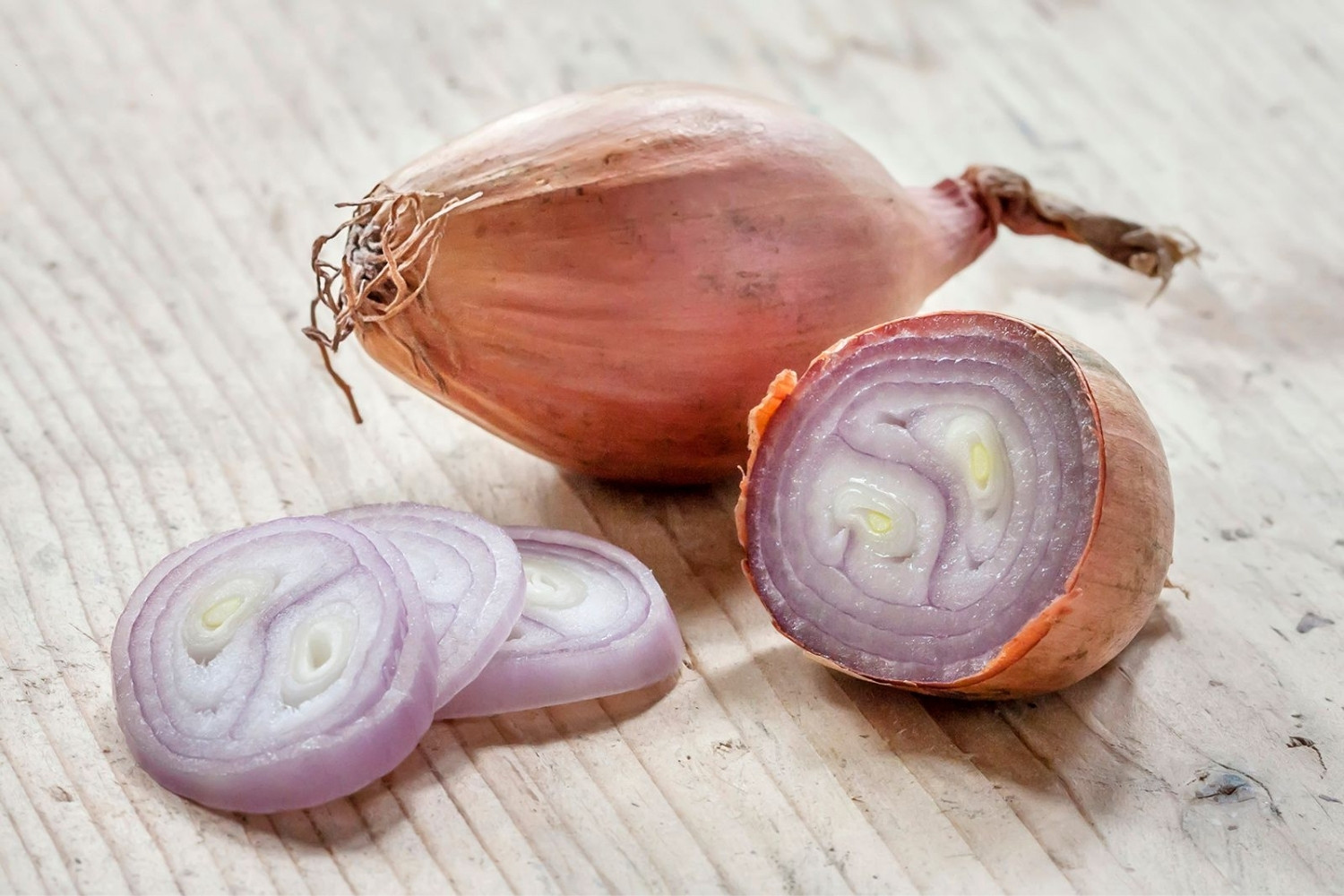
Shallots might look like small onions, but they pack a unique punch in the kitchen. Ever wondered what makes these little bulbs so special? Shallots belong to the allium family, which includes onions, garlic, and leeks. They have a milder, sweeter taste compared to onions, making them perfect for delicate dishes. Did you know that shallots are rich in antioxidants and vitamins? They can boost your immune system and improve heart health. Plus, they’re versatile! You can use them raw in salads, caramelized in sauces, or roasted to bring out their natural sweetness. Ready to learn more? Let’s dive into 25 fascinating facts about shallots!
What Are Shallots?
Shallots are a type of onion known for their mild flavor and versatility in cooking. They are often used in gourmet dishes and are prized for their unique taste. Let's dive into some fascinating facts about shallots.
-
Shallots belong to the Allium family, which includes onions, garlic, and leeks. This family is known for its strong flavors and health benefits.
-
They have a milder taste compared to regular onions. This makes them perfect for dishes where a subtle onion flavor is desired.
-
Shallots are often used in French cuisine. They are a staple in many classic French recipes, adding depth and complexity to sauces and dressings.
-
They grow in clusters, similar to garlic. Each cluster can contain multiple bulbs, making them easy to harvest and use.
-
Shallots can be eaten raw or cooked. Their versatility allows them to be used in salads, soups, stews, and more.
Nutritional Benefits of Shallots
Shallots are not just tasty; they are also packed with nutrients. Here are some health benefits you might not know about.
-
Rich in antioxidants. These compounds help protect your cells from damage caused by free radicals.
-
High in vitamins and minerals. Shallots contain vitamins A, B6, C, and E, as well as minerals like potassium, manganese, and iron.
-
Low in calories. A 100-gram serving of shallots contains only about 72 calories, making them a healthy addition to any diet.
-
Contain allicin, a compound with antibacterial properties. Allicin is also found in garlic and is known for its health benefits.
-
May help reduce blood pressure. The potassium in shallots can help regulate blood pressure levels.
Growing and Harvesting Shallots
Interested in growing your own shallots? Here are some facts about their cultivation.
-
Shallots prefer well-drained soil. They thrive in soil that is rich in organic matter.
-
They need full sun to grow well. Make sure to plant them in a sunny spot in your garden.
-
Planting is usually done in the fall or early spring. This gives them enough time to grow before the harvest season.
-
Shallots are ready to harvest when the tops start to yellow and fall over. This usually happens in late summer.
-
They can be stored for several months. After harvesting, shallots should be cured in a dry, well-ventilated area before storage.
Culinary Uses of Shallots
Shallots are incredibly versatile in the kitchen. Here are some ways you can use them in your cooking.
-
Perfect for making vinaigrettes. Their mild flavor blends well with vinegar and oil.
-
Great for caramelizing. Shallots caramelize beautifully, adding a sweet and savory flavor to dishes.
-
Ideal for roasting. Roasted shallots can be a delicious side dish or a flavorful addition to salads.
-
Used in making compound butter. Mix minced shallots with butter and herbs for a tasty spread.
-
Essential in making classic French sauces. Shallots are a key ingredient in sauces like Béarnaise and Bordelaise.
Fun Facts About Shallots
Let's wrap up with some interesting tidbits about shallots that you might find surprising.
-
Shallots have been cultivated for over 2,000 years. They have a long history of use in cooking and medicine.
-
They were once believed to have mystical properties. In ancient times, people thought shallots could ward off evil spirits.
-
Shallots are often confused with scallions. Despite their similar names, they are different plants with distinct flavors.
-
They are a popular ingredient in Southeast Asian cuisine. Shallots are used in many dishes from countries like Thailand and Indonesia.
-
Shallots can be pickled. Pickled shallots make a tangy and crunchy addition to sandwiches and salads.
The Final Slice on Shallots
Shallots aren't just another onion. These little bulbs pack a punch with their unique flavor and nutritional benefits. From boosting your immune system to adding a gourmet touch to dishes, shallots are a kitchen must-have. They're rich in antioxidants, vitamins, and minerals, making them a healthy choice for any meal. Plus, their versatility in cooking means you can use them in everything from salads to sauces.
Whether you're a seasoned chef or a home cook, incorporating shallots into your recipes can elevate your culinary game. They're easy to grow, store well, and offer a distinct taste that sets them apart from other alliums. So next time you're at the grocery store, grab some shallots and experiment with their flavorful potential. Your taste buds will thank you!
Was this page helpful?
Our commitment to delivering trustworthy and engaging content is at the heart of what we do. Each fact on our site is contributed by real users like you, bringing a wealth of diverse insights and information. To ensure the highest standards of accuracy and reliability, our dedicated editors meticulously review each submission. This process guarantees that the facts we share are not only fascinating but also credible. Trust in our commitment to quality and authenticity as you explore and learn with us.
